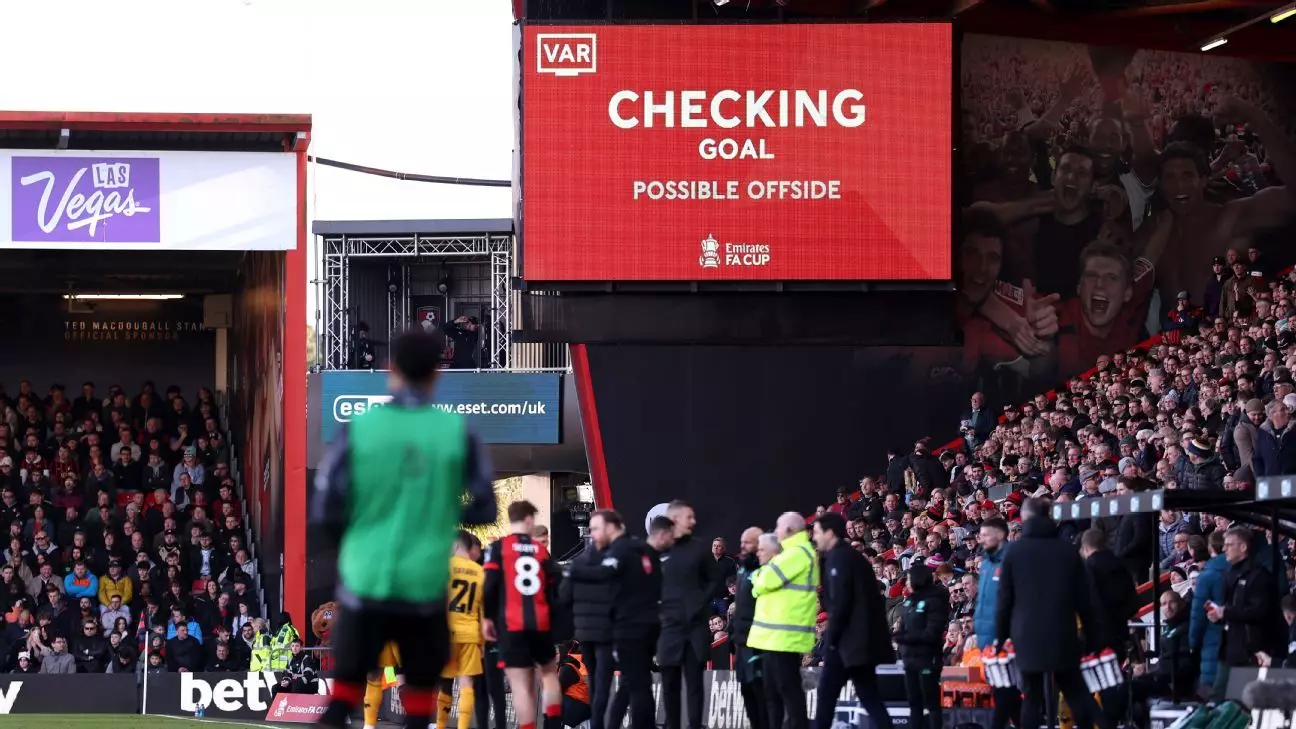In recent discussions, the governing bodies of football are contemplating a transformative leap in officiating technology. Howard Webb, the head of the Premier League referees, reveals an openness to broadening the scope of the Video Assistant Referee (VAR) system. Currently, VAR is a gatekeeper for crucial decisions—goals, penalty calls, red cards, and mistaken identity. However, Webb’s insights suggest that the system’s potential is far from exhausted. By proposing the inclusion of yellow cards and corners, he advocates for a smarter, more comprehensive application of technology, aiming to mitigate human error and elevate fairness in the game.
From a strategic standpoint, extending VAR’s remit to encompass yellow cards and corner decisions could dramatically reshape match dynamics. These aspects, often overlooked or incorrectly adjudicated, have tangible consequences that ripple through the game’s outcome. For instance, a wrongly awarded corner can create unwarranted pressure, while an incorrectly issued yellow card might influence players’ behavior or even lead to a player’s expulsion. Webb emphasizes that these errors, though seemingly minor, can have significant repercussions, highlighting the necessity for VAR to intervene more frequently and effectively.
The Ethical and Societal Dimensions of Refereeing Excellence
The conversation around VAR’s expansion is not solely technical but also deeply ethical. Webb underscores the importance of fairness, advocating for a system that minimizes incorrect decisions. Still, the challenge lies in balancing technological intervention with the natural flow of the game. The human element of refereeing can never be fully eradicated, but technology can serve as an equalizer, ensuring that the final decisions are as just as possible.
Moreover, Webb’s acknowledgment of the abuse directed towards officials paints a sobering picture of modern football’s societal issues. Match officials, often caught in the crossfire of passionate fans and media scrutiny, face threats and confrontations that cross acceptable boundaries. Webb’s condemnation of such behavior spotlights the need for cultural change—respect and integrity should guide the sport, not hostility and violence. This aspect brings to light that technological improvements alone are insufficient if the broader environment remains hostile and disrespectful.
Consequences for Officials and the Integrity of the Game
On a more personal note, Webb candidly discusses the fallout for referees involved in misconduct. The case of David Coote exemplifies the heavy toll of misjudgments and inappropriate behavior that can tarnish careers irrevocably. Webb’s nuanced view reflects a recognition that accountability is crucial for maintaining standards, but it also prompts questions about redemption and second chances in professional sports.
The potential expansion of VAR could complicate the disciplinary landscape further. As technology becomes more embedded in decision-making, the line between human judgment and digital correction will become more blurred. This evolution demands more rigorous training, ethical standards, and a collective commitment to integrity—elements that underpin the sport’s credibility.
In sum, the future of football officiating may hinge on our willingness to embrace technological change and address societal issues simultaneously. Expansion of VAR’s capabilities offers the promise of more just outcomes, but it also challenges us to foster a culture of respect, accountability, and continuous improvement. Only by tackling both the technical and ethical dimensions can football truly evolve into a fairer, more thrilling spectacle.

